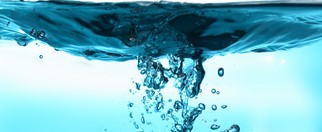Choosing the right home water filter system takes time. Follow our guide to help you choose the right water filtration system for your home.
Because of the recent emphasis over health and environmental issues, more people are becoming concerned over the quality of water that comes out of their home’s taps.
The result has been a boom in home water filters and purification devices. Home water filters reduce contaminants and bad tastes and odors. These systems can range from simple, inexpensive filters that screw on to the end of your kitchen faucet to costly whole house systems that tap into basement water pipes. There are even systems to filter refrigerator ice-cube makers and water dispensers.
The water filter purification system choice for your home
But the big choice is whether you EVEN need a water purification system. The other big impact is the piping in your home, which has varying degrees of lead and lead solder. The water coming into your home may be fine, but you may have problems once that water travels through your home.
And if your home is on a well water system, there are also concerns about contaminants working their way into your water. But before making an investment and installing a water purification system, homeowners should first have their home’s water tested. But do not have your water tested by organizations that are trying to sell you something.
On a separate topic, you might be interested in food and safety information from the International Home and Housewares Show in Chicago from several years ago.
Lead, sediments, contaminants and other considerations
In addition to lead, among the things that can be found in your water systems are dirt, rust, sediment, sand, silt, cloudiness, copper, chlorine, benzene, asbestos fibers, Dioxin, molds and algae, oxidized iron, oxidized manganese, oxidized sulfur and other metals or chemicals.
If contaminants are found, those test results will help direct you to the best type of water purification system for your home. Most systems will list the contaminants they remove and/or reduce right on the box.
Taste and smell considerations
Another reason you may opt for a water purification system is for taste and smell.
In addition to cleaner drinking and cooking water, water purification systems can also be a benefit to your home’s appliances. Your humidifiers and irons will last longer if you use cleaner water, say water officials. A whole house water purification system, meanwhile, will help with larger appliances such as washing machines and dishwashers.
As a general rule of thumb, the bigger the system, the more things it can filter out.
Choosing a system, say experts, depends on your needs. If you simply don’t like the taste and smell of your water, a small faucet filter may do. An under-the-counter unit may be best for people planning to use their tap water for drinking, cooking and appliances.
Whole house vs under kitchen sink water filter systems
A whole house system, meanwhile, may also be the best bet if your well water leaves marks and rings in tubs and sinks. One feature to keep in mind is bypass switches. These switches allow you to switch to ordinary tap water for jobs such as washing cars or watering the grass. The main advantage to bypass switches is saving filter cartridge life.
Water purification systems can be found at many home improvement stores as well as department stores. Before you buy any water purification product, check for a National Sanitation Foundation blue certification mark on the box.
After the water testing costs, water purification systems can cost under $50 for the simple faucet attachments devices. You’ll pay upwards of $150 for under-counter units. And, pay as much as $600 to $700 or more for a customized whole house system.
Once installed, water purification systems are relatively cheap to operate. While a gallon of purified bottled water at the supermarket may cost as much as a $1, it cost only pennies to produce a gallon of purified water at home. There’s also convenience factor. You don’t have to lug home bottles of water from the supermarket.
by Jim Sulski.

